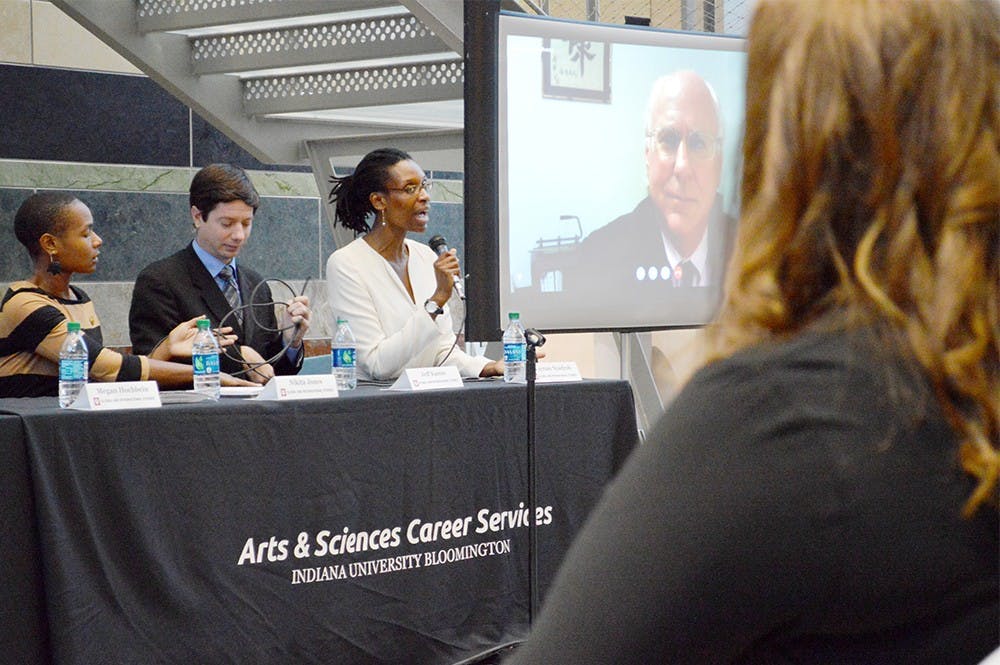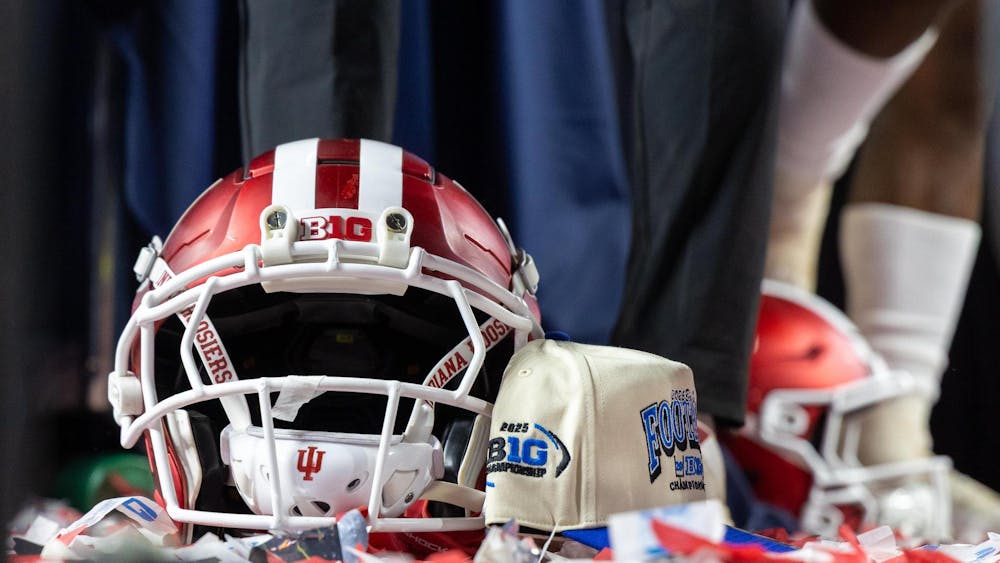Students learned how their future career paths fit into the greater global community at the College of Arts and Sciences’s Career Night.
Students and faculty gathered in the atrium of the Global and International Studies building to listen to as the panel of nine professionals from a variety of organizations and fields shared their experience and career advice.
Laura Fonseca, associate director at Arts and Sciences Career Services, helped organize the event and guided the discussion.
“We have hosted similar events in the past, though the energy this year is different,” Fonesca said. “With the launch of the School of Global and International Studies and Secretary Kerry’s call to action earlier this month, everyone is very energized.”
Fonseca said the event was part of a Global Career Series that includes workshops, panels, networking events and site visits.
The one-hour panel discussion was followed by a catered reception and a chance to speak directly with the individual employers.
“This event is a hybrid of needs,” Fonseca said. “Students wanting to learn more about opportunities to use their skills in a global context and professionals or employers looking to further engage with students about opportunities.”
The panelists provided opinions on important professional skills as well as tips on how to develop them.
“Some people say that they enjoy working with people, but I think there is a skill of being relational and working well with people,”said Megan Hochbein, the director of outreach and immigration services at Exodus Refugee Immigration.
Hochbein said it is particularly beneficial to be able to have difficult conversations with people.
“If there’s a way that you can practice that, it will go a long way,” Hochbein said.JM
Vayram Nyadroh, a foreign service officer with the United States Department of State and former vice consul and political officer at the U.S. Embassy Guatemala, said effective communication skills are crucial in the field of diplomacy.
“Think about something you’re really passionate about, and go talk to someone who does not believe what you believe,” Nyadroh said. “That’s a quick way to practice having difficult conversations.”
Malea Hoepf-Young, the health education and access coordinator at the Kentucky Office for Refugees, said that in order to communicate effectively with people from different backgrounds, it is important to do research beforehand.
“I can’t overemphasize how important being able to write well and for a variety of different audiences is and how it will serve you,” Hoepf-Young said.
The panel also talked about the importance of sustainability in terms of projects and professional relationships.
“In order to have lasting change and sustainable change, we need to have good policies, we need to have good colleagues that you are working with,” Richard Whelden, a retired Senior Foreign Service Officer at USAID, said. “You also need to have strong organizations behind you to promote the changes that we are hoping to achieve.”
Nikita Jones, a program specialist with the Office of University Programs at the Chicago/Midwest office of Peace Corps, said sustainability is often determined by what you leave behind.
“What you do today, you might not think it’s important,” Jones said. “But two weeks from now, when you’ve moved onto another job, that person may need the very thing you didn’t think was important.”
Other panelists included Mark Fisherkeller, the associate vice president with Arcadis; Kimberly J., the CIA recruiter for the Midwest; Marsha Lovejoy, the Global Manager of Corporate Content Strategy for Cook Medical and affiliated Cook companies and Jeff Kamm, the Operations Manager at the International Center of Indianapolis.
“We live in an increasingly globalized world,” Fonseca said. “There aren’t many industries left in which you can avoid looking at your work from a global perspective.”






